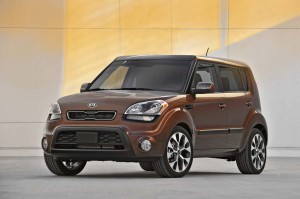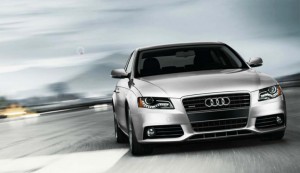
Kia was named best mainstream brand in terms of 5-year total ownership costs, with the Soul winning in the Compact segment.
There are plenty of bargain-priced cars, trucks and crossovers, but that doesn’t always mean they add up to a good deal. Smart shoppers know that there are lots of ways costs can quickly get out of control when you own a car, from insurance to fuel economy to maintenance and repairs.
And that’s why a new study from Kelly Blue Book is focusing on what really matters: the total cost of ownership. And there, the data-tracking website concludes, Kia is the clear stand-out, as the top brand among all manufacturers when the entire ownership experience is tallied up. Audi, meanwhile, was the number one luxury brand in terms of total cost of ownership.
“Car shoppers should take the time to compare vehicles on their consideration lists to fully understand the financial implications involved with cost of ownership,” said Juan Flores, director of vehicle valuation for Kelley Blue Book. “While a vehicle might be less expensive up front, the cost of fuel for that model, insurance and other expenditures could make it the less appealing choice for their wallet in the long run.”
Kia scored big because of the high fuel economy, “greatly improved quality,” and rising trade-ins values, noted KBB researchers, pointing to products like the Soul crossover, Optima sedan and Sportage SUV. Audi was a stand-out because of its low depreciation and solid mileage in a segment normally not known for great fuel economy. Audi had a number of high-value models, including the small A3 wagon, the A4 sedan and Q5 SUV.
The new KBB Total Ownership Awards included a few surprises, notably the Chevrolet Volt plug-in hybrid, which narrowly bested the Nissan Leaf battery-electric vehicle in the Electric Car category. Other studies have found consumers turned off by the Volt’s initial price tag – about $40,000 before a $7,500 federal tax credit. But considering the Chevy plug-in’s minimal energy and maintenance costs and likely trade-in value, KBB concluded the 5-year total ownership cost will come to only $40,629 compared to $42,089 for the Leaf.
That’s only about $4,000 more than the anticipated total ownership cost for the compact Nissan Juke, at $36,627, the winner in the Compact Crossover category, and a little more than $2,000 over the $38,476 ownership cost for a Hyundai Sonata, which scored tops in the Mid Size Car segment.
Competition was especially tough in the Subcompact Car segment, KBB noted, with only $400 separating the top three models, the Nissan Versa squeaking out a victory with an anticipated 5-year ownership cost of $29,252 – the lowest of any product included in the first annual Total Ownership Awards.
The Audi A5 provides a good example of how a car that costs more up-front may actually prove to be the long-term bargain. While KBB reported it is more expensive than many competitors in the Luxury Car class, it had a 5-year, $5,000 advantage, all-in, at $56,908.
Similarly, the Jeep Wrangler might be more expensive than offerings like the Toyota FJ Cruiser and Nissan Xterra, but the Detroit model was the clear winner in the Mid-Size Sport Utility category, with a five-year projected total ownership cost of $41,764.
The most expensive vehicle to own that still won its segment? That was the Lexus LS460 High End Luxury Car, at $90,234. The KBB survey cited the premium sedan’s low up-front costs, minimal depreciation and low insurance and repair costs.
Manufacturers typically try to hype hybrids by focusing on their fuel economy. That may be a significant advantage, but there’s also a sizable up-front premium for the added technology. And that means they aren’t necessarily the bargain they might seem. The Honda Insight, the winner in the Hybrid category, at $32,884 over five years, was less of a bargain when compared to traditionally powered options, including the Nissan Versa and the slightly larger Kia Soul, at $31,417 the winner in the Compact Car class.
(For the complete results from the new Cost of Ownership Awards, Click Here.)

